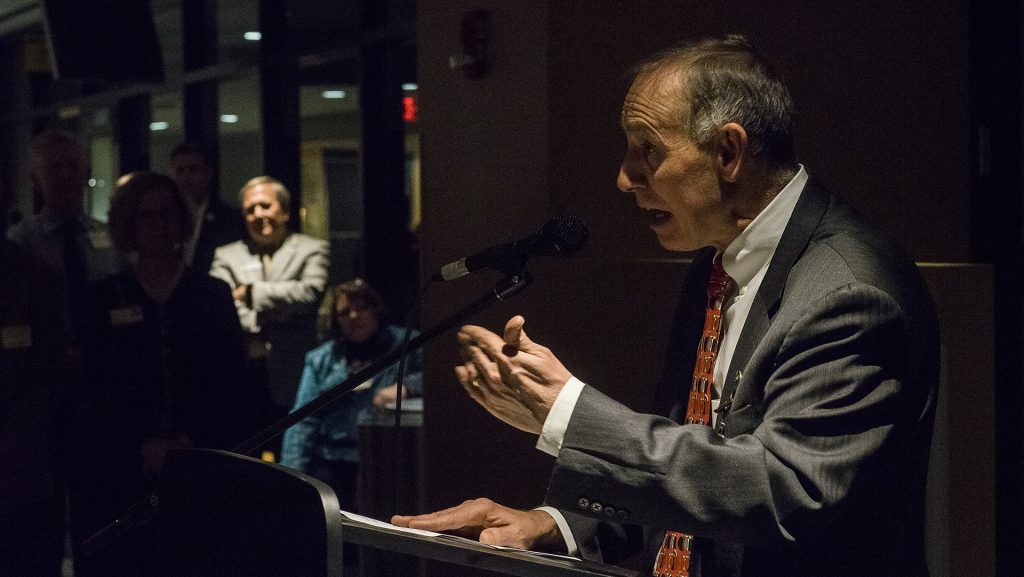The new Vice President for Medical Affairs and Dean of the Carver College of Medicine has been on the job for just two weeks, but he is already thinking of ways to make both UIHC and the medical school better.
J. Brooks Jackson came to the UI from the University of Minnesota, where he was the vice president for health sciences and dean of the medical school.
He said he had never been to Iowa before his interview, but over the past two weeks, he has come to love the culture and scenery, especially the bike trails that he uses to run.
“It is a small but very dynamic, community with incredible culture, with music, dance, theater … great biking trails, running trails, it’s hilly, it’s not just all flat,” he said. “It’s just a very nice community, no doubt about it.”
Jackson said he had to really hit the ground running as soon as he stepped into his roles. Meeting with people to go over finances, finding out research priorities, and keeping up with the ever-changing government decisions about health care are just a few of the things he has done, not to mention just figuring out the layout of facilities, both at the university and throughout the community.
“When you start a position like this, it’s a very big, complex organization, I think we have more than 16,000 people in the health system and school, so it’s like drinking from a fire hose,” he said.
Jackson’s research over the years has mainly focused on HIV and the transference between an HIV-infected mother and her child, and he has traveled to China and Africa to work on prevention.
He said becoming a dean has slowed that some, but he hasn’t stopped completely.
With every university with many medical research opportunities, Jackson said, there is the push to have a hand in many different areas, which isn’t as successful as being a leader in one area.
He also noted that making both education and health care more affordable is something to strive for.
“We need to focus on that where we really can be leaders in care, not just providing the optimal care with our current knowledge, but coming up with the cure for cancer, or the cure for HIV, the cure for Alzheimer’s, we want to be leaders in that,” he said.
The UI’s fully integrated health system is why Jackson decided to leave the University of Minnesota, he said.
A fully integrated health system means the hospitals and clinics are a part of the university instead of being separate. He said there could be tension between the different institutions in terms of priorities, which makes it difficult to make them work together.
Jackson said he and the UI health system are looking hard at the major steps they’re going to take in the future, and that change is inevitable with the current state of health care, both here and in the nation. Officials are looking at the different ways they can grow their programs and leave a bigger research footprint.
“One way or the other, there will be big changes, because the current health-care system and the finances are just unsustainable …” he said. “We have to somehow make health care more affordable and at the same time provide great care.”



